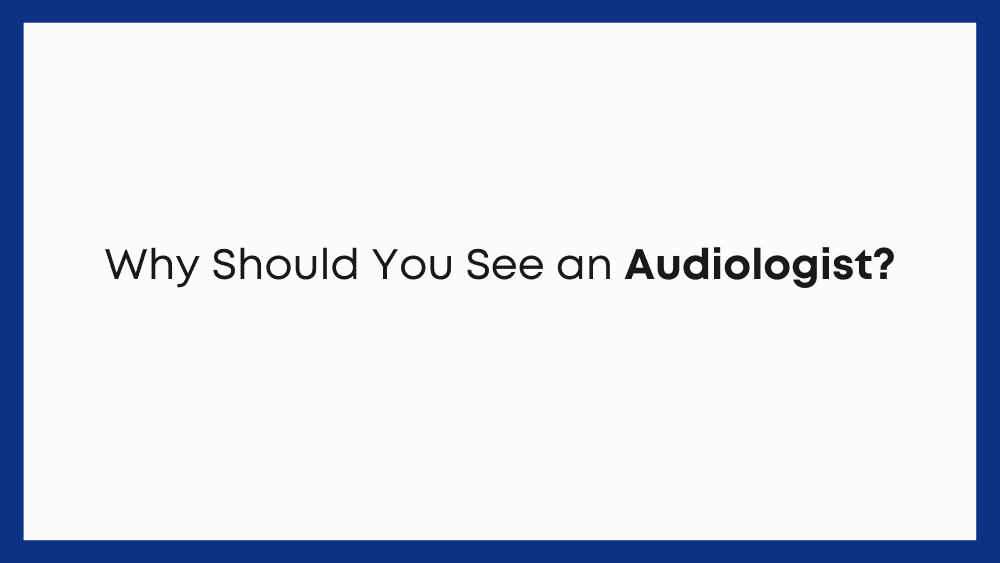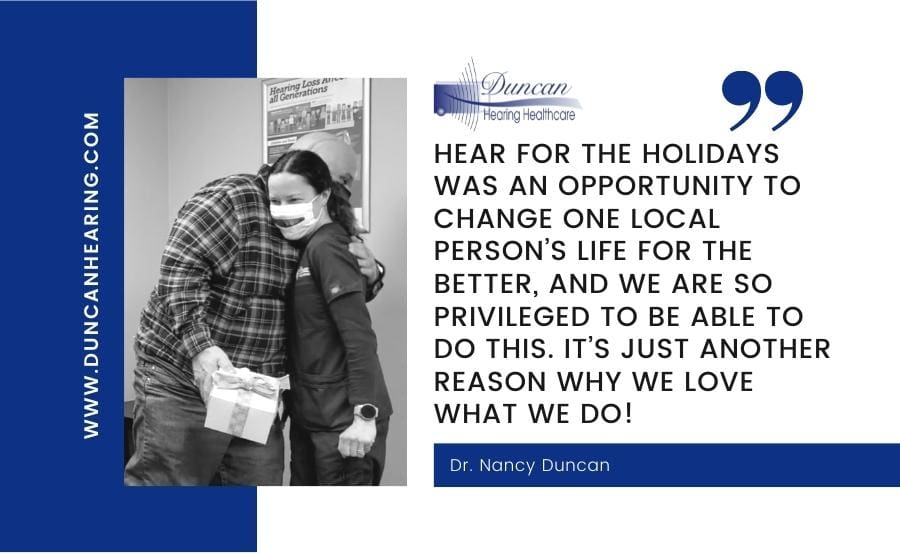Wondering whether you should get hearing aids is a much more common question than you may think. Over the years, I have answered this many times, and throughout all that time, my answer hasn’t changed.
It’s a valid question, but we don’t know what you need until we do a hearing assessment.
Right now, in our industry, there seems to be a push for people to get hearing devices online, and there is also the notion that hearing evaluations are unnecessary when determining whether you need hearing aids and what hearing aids are right for you.
With the rise of over-the-counter (OTCs) and online hearing devices, patients can inadvertently be swayed into thinking this is the best solution for them. They are easy to attain from either your local pharmacy or online. They usually come with a discounted price compared to prescribed, FDA-approved hearing aids.
The most crucial aspect of OTCs is they do not require a comprehensive hearing assessment. As an audiologist, I disagree with hearing assessments being deemed unnecessary and I’m here to explain why in this video below.
Prefer to read than watch? Here are the transcripts for you.
What Is The Purpose of A Hearing Evaluation?
We do this evaluation so that we can rule out several issues to make sure that you are a good fit to be our patient and to look toward getting hearing devices.
We look for a few things during a hearing test that will lead us to a solution to your problem.
Physical Inspection
- We look in your ear for anything that may affect the fit of your hearing aids.
- Search for any growths or impacted wax
- Remove wax to get an accurate reading on the tests
Listen To A Series Of Beeps And Tones
- Start simple to establish a baseline for your hearing.
- The beeps and tones will change volume, and you simply inform us of the ones you can’t hear.
- This is the first step in seeing how severe your hearing loss is.
- This helps us determine at what volume your hearing aid should be set for the minimum level.
Listen To Different Words
- We play random words in no particular order using the information collected from the previous step.
- This is used to confirm the results of the first test.
- We are now measuring the strength of your auditory nerve.
- This nerve is vital to delivering sound signals to your brain for interpretation.
Listen To Speech With Background Noise
- The most complex level of the test will evaluate how your brain processes the speech from the earlier test but set to background noise.
- This is to get the settings right on your hearing aid to match your everyday environment.
- This is the toughest one, as some patients may have no problem with any of the previous tests and then struggle with this one.
Bone Conduction Evaluation
- A headset is used that goes behind the ear to measure between nerve damage or mechanical damage.
- Mechanical issues need to be referred to an ear, nose, and throat doctor first before getting hearing aids.
The Audiogram Of Familiar Sounds
Once we have collected all your data from the comprehensive hearing test, we use that to see how sounds fall on your ears.
By plotting this on an audiogram, we discover patterns in your hearing that are used to prescribe the best hearing aid for you.
This helps identify specific problems in patients who may say they hear but are having trouble understanding. Another symptom is hearing muffled voices and sounds. This is the brain not deciphering the information it is getting.
An audiogram lets us pinpoint these unique tendencies. So even if your hearing is not bad now, we can gauge what is happening and prepare.
Type Of Hearing Loss
What we’re also looking for is what type of hearing loss you’re experiencing, which will determine the hearing treatment required.
Sensorineural
This is the most common type of hearing loss. It can be managed with the proper hearing aids that are fit by a professional audiologist. It’s usually caused by aging, noise damage, medication side effects, etc. No medical procedures are required.
Conductive
As a more mechanical loss, this affects your ears’ physical ability to consume sounds. It is brought on by fluid buildup, foreign objects, allergies, impacted earwax, etc. The bone conduction evaluation will reveal any problems in this area. Medical procedures may be required.
Mixed
In rare cases, both types of hearing loss will present themselves. This can be caused by genetic disorders, infections, or head trauma, among others. This may or may not require medical procedures.
Additional Testing
Sometimes, our testing will lead us to seek more answers about how you hear. Our collected data may cause us to use one or more of the following tests as well.
Tympanometry – This tells us about the integrity of the inner ear. It shows if any fluid needs to be removed.
Otoacoustic – This measures damage on the outer ear cells. Sometimes damage here does not show up on the audiogram.
Acoustic Reflexes – We test your ears’ ability and natural reaction to louder noises. We want to make sure they are responding the same and performing at their best.
High-Frequency Word Lists – We use a specific list of words to see how a patient does with and without hearing aids. The terms are designed to exercise the affected area of your hearing that is giving you the most trouble. This is usually the most eye-opening test for patients, as they can finally see how much they are missing.
While I can’t give a straight answer as to if you need hearing aids or not, I can say that if you read this article, you will benefit from a comprehensive hearing exam.
Now that you have all the information, it’s time to get some answers.
We are always available to chat about your situation over the phone in a friendly and no-obligation manner. We are here to help everyone in Fall River, Centerville, and Dartmouth.
We look forward to hearing from you soon.
Have a wonderful day!





